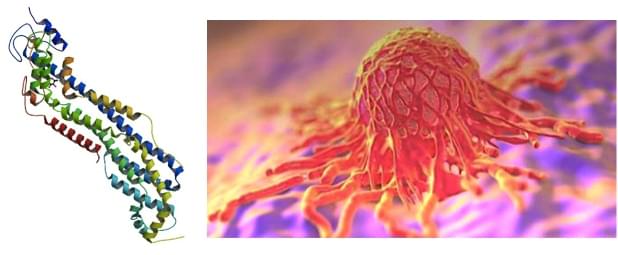All products and services are For Research Use Only and CANNOT be used in the treatment or diagnosis of disease.
Target Background
Glypican-3 (GPC3) is a member of glypican family encoded by GPC3 gene and anchored on cell surface by glycosylphosphatidylinositol, which is associated with cell growth, differentiation and migration. Recent researches revealed GPC3 is highly expressed on tumor cell such as melanoma, ovarian, yolk sca tumor, neuroblastoma and hepatocellular carcinoma, while restricted in normal tissues of adults, which confirms GPC3 as an attractive cellular target for cancer immunotherapy.

A Case Review: Treatment-Naïve Patient with Head and Neck Cancer.
ReachMD. 2016
Anti-GPC3 CAR-T Cell Therapy
GPC3 positive hepatocellular carcinoma (HCC) is one of most studied cancers for evaluations of GPC3 specific CAR-T therapy. Data indicates that about 70% of hepatocellular carcinoma patients have GPC3 expression on tumor cells. Both in vitro and in vivo studies indicate that GPC3-targeted CAR-T cells show significant cytotoxic effects on tumor cell when using CD28 and CD137 costimulatory domains. Third generation GPC3-targeted CAR-T cells like GPC3-28BBZ have been used in several Phase I clinical trials to evaluate safety and efficacy in patients with hepatocellular carcinoma. These studies have been registered and are being conducted (NCT02395250 and NCT02723942).
Animal Models for in vivo Study of anti-GPC3 CAR-T Cell Therapy
Creative Biolabs established several xenograft tumor models for studies of anti-GPC3 CAR-T therapy. Immunocompromised mice used for tumor model development are housed in pathogen-free condition and quarantined for one week before experiment. Animal experiments in Creative Biolabs are monitored by an approved Institutional Animal Care and Use Committee (IACUC).
Xenograft model of human hepatocellular carcinoma
This model is developed by subcutaneous injection of human hepatocellular tumor cell Huh-7 (or Hep-1, Hep3B) into mice on right flank and received GPC3-targeted CAR-T cells when tumor size meet criteria.
Xenograft model of lung squamous cell carcinoma
Cell NCI-H520 or SK-MES-1 expressing GPC3 are subcutaneously incubated into mice on right or left flank, and followed by CAR-T cell injection via tail vein.
In vivo Assay Parameters and Techniques
Creative Biolabs offers comprehensive services to test anti-GPC3 CAR-T therapy in preclinical trials. All tests are conduct by experienced technicians and strike to milestone of timeline.
Efficacy Test
Tumor remission monitored by tumor volume recording or bioluminescence imaging and survival curve tracking.
Viability and Bio-distribution Studies
Durability, GLP-compliant bio-distribution studies
Toxicity Evaluation
Pilot tolerability (MTD, The route of administration, Dose regimen/response/onset)
Clinical observation (body weight, feed consumption, ophthalmologic and clinical pathology)
Cytokine storm surveillance (fever, hypertension, prolonged cytopenia)
Complete necropsy, organ weight
Histopathology
Tumorigenicity study
GLP-Compliant Preclinical Test
All our experiments are performed by well-trained and experienced technicians in a GLP-compliant and IACUC-regulated facility.
Technical team in Creative Biolabs has extensive knowledge and experience for evaluation of GPC3 specific CAR-T cell therapy. We provide different in vivo tumor models and analyzing assays for preclinical evaluation of adoptive T cell therapy.
References
For any technical issues or product/service related questions, please leave your information below. Our team will contact you soon.
 NEWSLETTER
NEWSLETTER
The latest newsletter to introduce the latest breaking information, our site updates, field and other scientific news, important events, and insights from industry leaders
LEARN MORE NEWSLETTER NEW SOLUTION
NEW SOLUTION
CellRapeutics™ In Vivo Cell Engineering: One-stop in vivo T/B/NK cell and macrophage engineering services covering vectors construction to function verification.
LEARN MORE SOLUTION NOVEL TECHNOLOGY
NOVEL TECHNOLOGY
Silence™ CAR-T Cell: A novel platform to enhance CAR-T cell immunotherapy by combining RNAi technology to suppress genes that may impede CAR functionality.
LEARN MORE NOVEL TECHNOLOGY NEW SOLUTION
NEW SOLUTION
Canine CAR-T Therapy Development: From early target discovery, CAR design and construction, cell culture, and transfection, to in vitro and in vivo function validation.
LEARN MORE SOLUTION